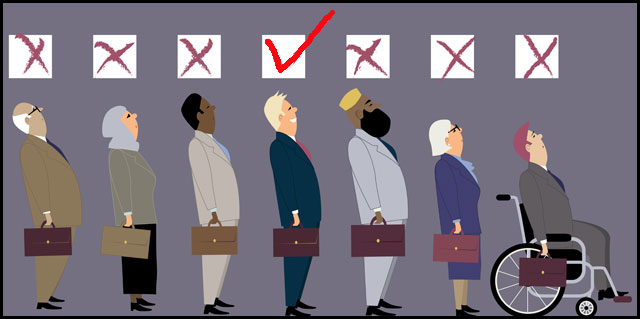The employment discrimination laws are there to prevent discrimination based on a protected class. The main body of these laws has state statutes and federal. The US constitution gives additional protection for the government employee. The 5th and 14th amendments of the US Constitution limits federal power as well as the state government to discriminate. The fifth amendment has a clear cut requirement that the federal government should not deprive people of liberty, life, or property without the due process of the law. There is also an implicit guarantee for every individual to receive equal protection by the law.
On the other hand, the fourteenth amendment prohibits the state from violating the people’s rights because all are covered by equal protection. In the context of employment, there is the right of equal protection that limits the power of the federal government and the state to practice workplace discrimination by treating the employees and the applicants unequally due to the membership in the group. Due process protection states that an employee should be given a fair process in case of termination of duties resulting from liberty or proper interest. The state constitution also is able to afford protection from employment discrimination. However, the law does not show direct constraint discrimination in all the private sectors, and they have become subject to a developing body of state statutes and federal.
In the year 1963, congress passed an equal pay act, which later amended the ‘Fair Labor Standards Act.’ Equal pay does not allow the unions and employers to pay different amounts to their employees based on their protected class. However, it does not prohibit other discriminatory practices, such as in hiring. It requires that if workers are working equally, applying equal skills and efforts, then they should receive the same equal pay. The ‘Fair Labor Standards Act’ applies to all the employees that are engaged in aspects dealing with interstate commerce.
‘Title VII of the Civil Rights Act, 1964’ does not allow discrimination in most of the aspects of the employment relationship. It applies to many employers that have engaged in interstate commerce, having not less than fifteen employees, employment agencies, and labor organizations. This act prohibits discrimination that is based on color, religion, race, sex, and nationality. When referring to sex, it includes pregnancies, childbirth, or any other related medical condition. It is illegal to discriminate an employee about these issues about discharging, hiring, compensating, in giving terms and conditions, as well as the privileges of the employment. The employment agencies most times do not discriminate when referring applicants or hiring them. Still, the act does not allow labor organizations from union classification or membership point of view.
Workplace discrimination can occur in the following situations;
• Suggesting a preferred candidate in an interview or a job advertisement
• Excluding potential candidate during the recruitment
• Denying some employees benefits especially those with disabilities
• Paying a different amount of salary to equally qualified employees
• Disrupting the company facilities and when promoting employees
Other employment malpractices that are protected and addressed under federal legislation are;
Age discrimination in the workplace- here, companies are advised not to specify the age of people they want to employ and to pay all employees equally regardless of the era, provided that the services rendered have similar effort.
Hostile environment- this if a form of harassment and discrimination whereby the workers are exposed to hostile and unfavorable working conditions, thereby preventing them from performing their duties well. It is an offensive working environment for the employees because they work with a lot of difficulties.
In the US, companies are prohibited from mistreating their employees, and any employee who feels that he/she has been discriminated in the workplace is advised to file a complaint with the ‘ Equal Employment Opportunity Commission.’

